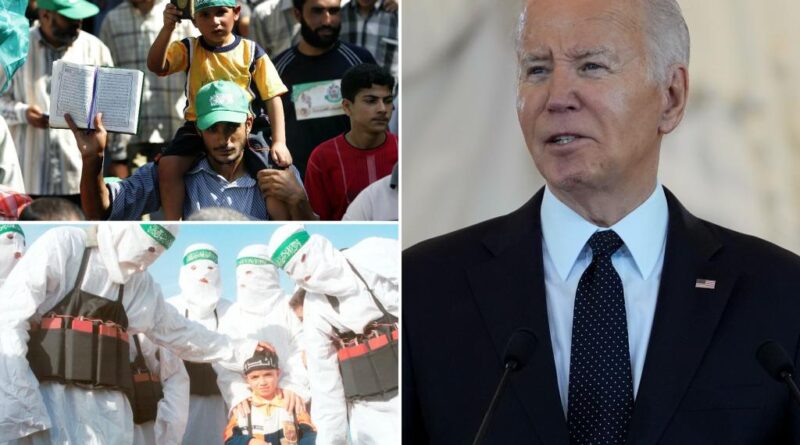The many challenges facing Biden’s plan for Gaza refugees

President Biden is contemplating the possibility of bringing Gaza war refugees into the United States. However, it’s important to remember the unfortunate consequences from past instances where similar efforts were made.
Prior to the Hamas attack on October 7, Israeli citizens had sponsored work permits for numerous security-vetted Palestinians to work on their farms near the Gaza Strip.
It is suspected that some of these Gazan laborers exploited their access to provide tactical information that aided Hamas terrorists in killing many Israelis on October 7.
The key takeaway from this unfolding story, as well as another incident where security-vetted Palestinian UN workers assisted the attackers on October 7, underscores the significant national security risks associated with importing Gazan war refugees to the US.
Most of the two million residents of the Gaza Strip have been indoctrinated from a young age with Hamas’s extremist Islamist ideology, promoting violence, hatred, and intolerance towards Jews and Americans.
While there may be exceptions among Gazans, it remains challenging to discern those who do not adhere to Hamas’s radical teachings. The extensive propaganda and indoctrination present a serious vetting challenge for refugee authorities.
Various studies have detailed how Hamas indoctrinates the populace in Gaza, emphasizing violent and hateful ideologies.
Reports of public celebrations and support for violence against Israelis after the October 7 attack highlight the pervasive influence of Hamas’s extremist teachings among Gazans.
Nayla Rush, a refugee policy expert, raises concerns about vetting processes for Gazan refugees, citing the deeply ingrained ideologies promoted by Hamas and the challenges of identifying individuals who may pose a security risk.
Hamas begins ideological indoctrination from an early age, with institutions like the Islamic University of Gaza propagating extremist views and promoting violence.
School curricula in Gaza are filled with anti-Israel and anti-Jewish propaganda, instilling hatred and intolerance towards non-Muslims.
Children are groomed to view violence and jihad as religious obligations, with glorification of martyrdom and hatred towards Jews ingrained in their education.
Hamas-led summer camps and other programs further radicalize young Gazans, preparing them for potential recruitment into Hamas’s armed forces.
Studies have revealed the extent of hateful indoctrination in Gaza and the glorification of violence against Israelis.
These radical teachings have fostered anti-Western sentiments and hostility towards the US among Palestinians, as evident in numerous polls and surveys.
The Biden administration’s consideration of importing Gazan refugees is questioned due to the significant national security risks posed by individuals radicalized by Hamas’s extremist ideology.
While providing assistance and aid to Gazans in need is important, the potential security threats associated with bringing them to the US outweigh the humanitarian considerations.
Todd Bensman, a senior national security fellow at the Center for Immigration Studies, emphasizes the critical need to address the national security implications of importing Gazan refugees.



